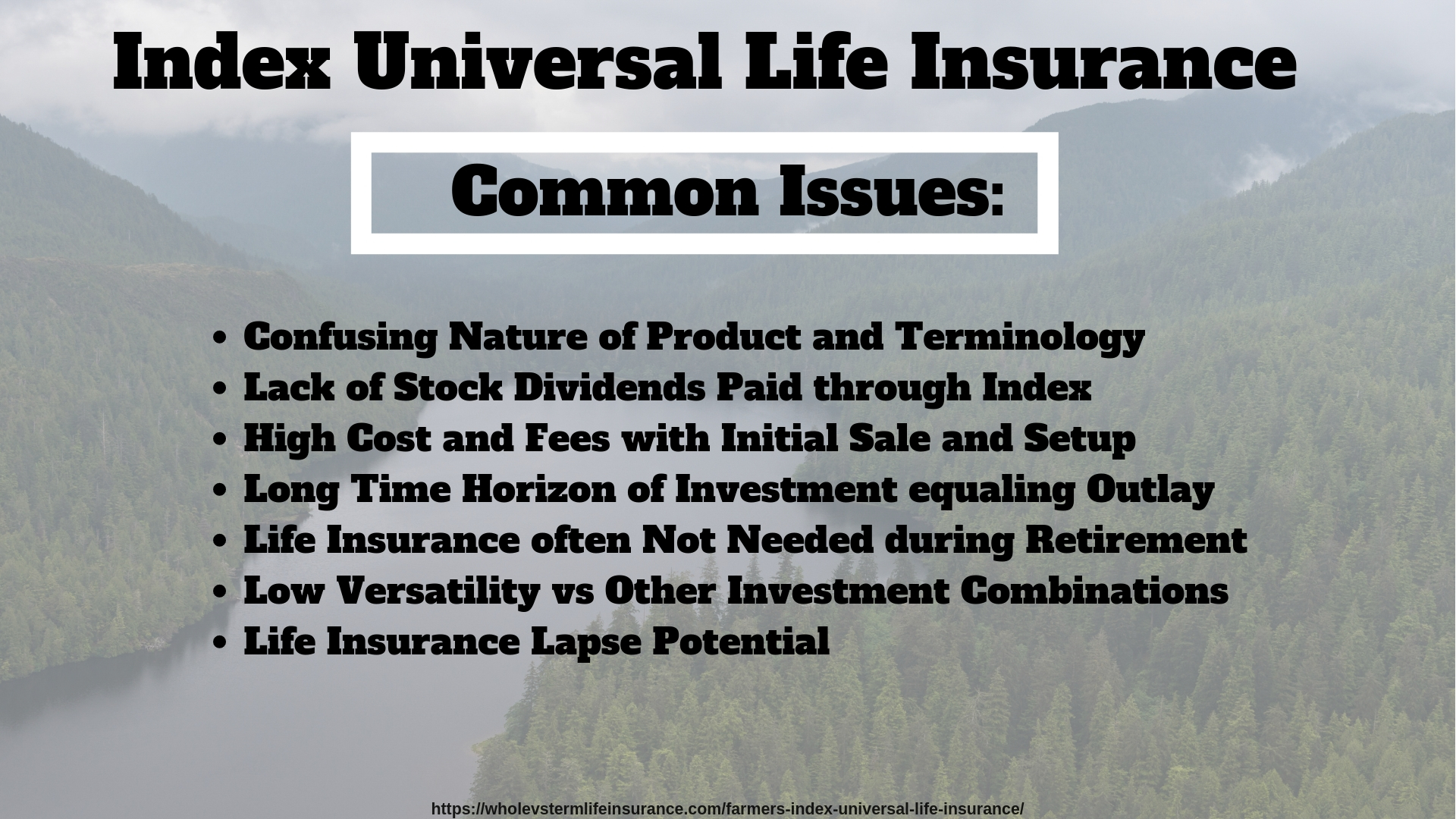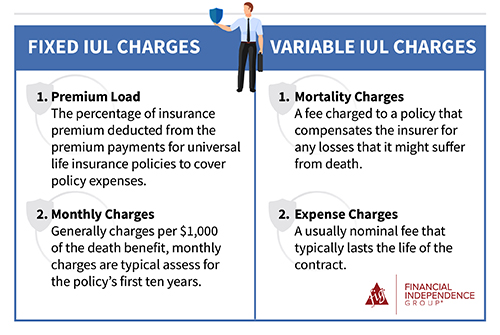All Categories
Featured
Table of Contents
Indexed Universal Life (IUL) insurance coverage is a kind of irreversible life insurance policy plan that combines the attributes of traditional global life insurance with the capacity for money value development connected to the performance of a securities market index, such as the S&P 500 (Indexed Universal Life policyholders). Like various other kinds of irreversible life insurance, IUL provides a fatality benefit that pays to the recipients when the insured passes away
Cash worth buildup: A section of the premium repayments enters into a cash money value account, which gains interest in time. This money worth can be accessed or borrowed versus throughout the insurance policy holder's life time. Indexing choice: IUL policies provide the opportunity for cash money value growth based on the performance of a stock market index.
What is Iul Policyholders?
As with all life insurance policy products, there is likewise a set of threats that insurance holders must recognize prior to considering this kind of policy: Market threat: Among the main risks related to IUL is market risk. Since the cash money value development is connected to the performance of a securities market index, if the index chokes up, the cash money value might not grow as expected.

Sufficient liquidity: Policyholders should have a steady economic scenario and be comfy with the premium settlement needs of the IUL policy. IUL enables adaptable costs settlements within particular limits, yet it's vital to maintain the plan to ensure it achieves its intended objectives. Rate of interest in life insurance coverage: Individuals that require life insurance policy coverage and a rate of interest in money worth growth might find IUL attractive.
Candidates for IUL should be able to recognize the technicians of the plan. IUL might not be the most effective option for individuals with a high tolerance for market risk, those that focus on low-cost investments, or those with more immediate economic demands. Consulting with a qualified financial expert who can provide tailored advice is essential prior to taking into consideration an IUL policy.
All registrants will receive a schedule invite and web link to sign up with the webinar using Zoom. Can not make it live? Register anyway and we'll send you a recording of the presentation the following day.
What is the process for getting Flexible Premium Iul?
You can underpay or avoid premiums, plus you may be able to change your death advantage.
Cash worth, along with prospective growth of that worth with an equity index account. An alternative to allot part of the money value to a set passion option.
Policyholders can determine the portion allocated to the fixed and indexed accounts. The value of the picked index is tape-recorded at the beginning of the month and compared to the value at the end of the month. If the index raises during the month, passion is included in the cash value.
The resulting passion is included to the cash money value. Some policies calculate the index obtains as the amount of the modifications for the period, while various other policies take an average of the everyday gains for a month.
High Cash Value Indexed Universal Life
The rate is set by the insurance provider and can be anywhere from 25% to even more than 100%. (The insurance provider can additionally transform the get involved rate over the lifetime of the plan.) For instance, if the gain is 6%, the involvement price is 50%, and the current money worth total amount is $10,000, $300 is contributed to the cash value (6% x 50% x $10,000 = $300).
There are a number of benefits and drawbacks to take into consideration before purchasing an IUL policy.: Just like common global life insurance policy, the policyholder can raise their premiums or lower them in times of hardship.: Quantities attributed to the cash money worth expand tax-deferred. The cash money worth can pay the insurance coverage costs, allowing the insurance policy holder to lower or stop making out-of-pocket premium payments.
Who are the cheapest Iul Calculator providers?
Several IUL policies have a later maturity day than other kinds of global life plans, with some ending when the insured reaches age 121 or even more. If the insured is still alive at that time, policies pay the survivor benefit (but not usually the cash value) and the earnings may be taxed.

: Smaller sized plan stated value do not use much benefit over regular UL insurance policy policies.: If the index drops, no rate of interest is credited to the money worth. (Some policies provide a reduced ensured rate over a longer duration.) Various other investment vehicles use market indexes as a standard for efficiency.
With IUL, the objective is to make money from upward motions in the index.: Due to the fact that the insurer just acquires choices in an index, you're not directly purchased stocks, so you don't profit when business pay dividends to shareholders.: Insurers charge costs for handling your money, which can drain money worth.
Flexible Premium Iul

For most individuals, no, IUL isn't far better than a 401(k) - High cash value IUL in terms of conserving for retirement. The majority of IULs are best for high-net-worth people trying to find methods to decrease their gross income or those who have maxed out their various other retired life options. For every person else, a 401(k) is a far better investment lorry since it does not lug the high charges and premiums of an IUL, plus there is no cap on the amount you might earn (unlike with an IUL policy)
While you might not lose any kind of money in the account if the index drops, you will not earn interest. If the market transforms favorable, the revenues on your IUL will certainly not be as high as a common investment account. The high cost of costs and charges makes IULs costly and considerably less budget-friendly than term life.
Indexed global life (IUL) insurance coverage provides cash money value plus a fatality advantage. The cash in the money value account can earn rate of interest via tracking an equity index, and with some often assigned to a fixed-rate account. Indexed global life policies cap just how much money you can build up (frequently at less than 100%) and they are based on a potentially volatile equity index.
What is the best Guaranteed Iul option?
A 401(k) is a far better option for that objective because it does not carry the high costs and premiums of an IUL policy, plus there is no cap on the amount you may gain when invested. A lot of IUL plans are best for high-net-worth people looking for to decrease their taxable revenue. Investopedia does not supply tax obligation, investment, or economic solutions and recommendations.
If you're considering purchasing an indexed global life policy, first consult with a financial expert that can explain the subtleties and provide you a precise photo of the real capacity of an IUL plan. See to it you recognize exactly how the insurance firm will calculate your interest price, profits cap, and charges that could be assessed.
Latest Posts
Universal Underwriting
Index Universal Life Calculator
What Is Indexation In Insurance